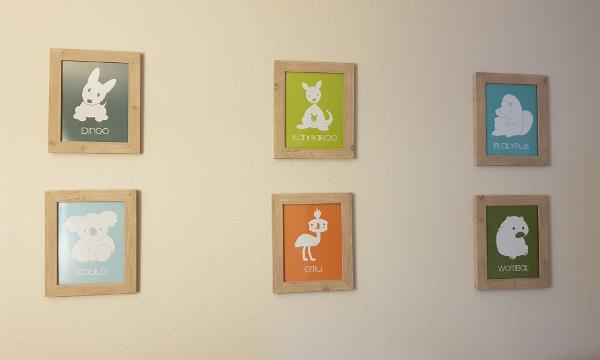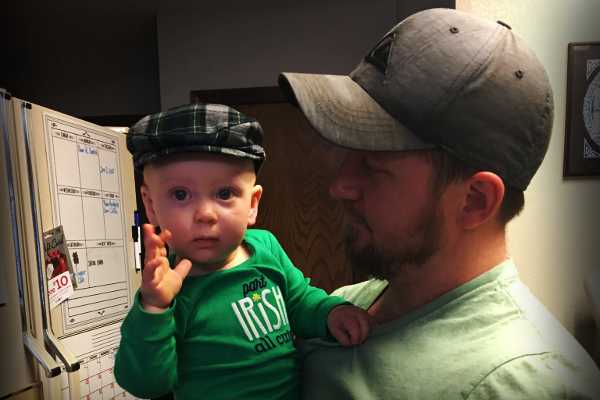My son recently turned 1 year old. 🙂
I had mentioned a while back that I was super excited to see and document his language development – both with his first and subsequent languages.
This is something I’ve always wanted to do.
When I was studying Applied Linguistics years ago I’d often say:
I can’t wait to have kids so I can study how they learn to speak.
I hold to the belief that adult language acquisition has so much to gain from studying the way kids learn their first language.
Many people think this is unreasonable.
Academics dismiss the idea and people generally think children are superhuman in their language absorbtion.
This idea that kids have special abilities and a brief window of limitless plasticity to absorb language that adults can never imitate is one thing in my opinion.
An excuse.
Adults can learn like children with the added bonus of being able to already communicate, read and conceptualize in a first language.
The problem really comes down to the fact that adults think too much.
Adult learners are metalinguistically on high alert all the time.
What does that mean? How do I say that? What’s the rule for that verb?
But kids couldn’t care less.
They hear and they repeat.
In the case of my 1 year old son, one of his first words (or attempts at a word) was “ba ba”.
Ball.
He’d hear me say “ball” but to his ears, what stands out is the prominant consonant: B.
He hears “ba” and repeats what he hears.
Importantly: he doesn’t care if it’s wrong.
He doesn’t care what I think. He doesn’t care if he sounds silly.
He’s just hearing a sound and associating that sound with its corresponding object.
Now regrettably, I haven’t been as meticulous about documenting my son as I had initially hoped (other parenting responsibilities tend to take over 🙂 ). However, I have made some interesting observations as a first-time parent that I want to share with you today.
My son started using sign language around 10 months old
I give credit to my wife for teaching him this.
(Also shout out to Jared Romey who taught his son to sign and encouraged me to do it).
It’s amazing to me how quickly a pre-toddler can start meaningfully communicating concepts using signs.
AND how much frustration on the child’s part it can eliminate when they are able to communicate basic wants and needs (I’m sure that baby sign language eliminates a lot of unnecessary fussing).
We started with some basics:
“more”, “water”, “milk”, “please” (see below), “thank you”, “all done”.
Initially I was skeptical about it working but he started using them very quickly.
One thing this has taught me is that very young kids want to be able to communicate and when given the means to do so, do communicate well.
It’s also reminded me that there is no shame as adult learners in signing with hand gestures to get a point across – these signs serve as a bridge or stepping stone to spoken communication.
Listening comprehension comes first
What’s been particularly interesting for me is watching my son begin to comprehend sounds.
There’s a lot that he understands and will respond to but still can’t (or won’t) say.
One example is colors.
He now knows blue, orange, purple, pink, green and yellow.
When we’re playing with legos or other colored toys and I say, “Aidan, where’s green?”, he’ll go and pick up a green lego.
The only color he’s actually attempting to say however, is purple.
“Pa pa”.
But what’s interesting is that he understands.
He recognizes the sounds of the color names and responds accordingly by finding the corresponding color.
To me this is fascinating.
From a practical perspective, it also goes to show that for us as adult learners, we often comprehend a lot more than we’re able to articulate.
You’ve probably learned to recognize a lot but are still not able to produce it.
My wife and I often joke that we need to be careful saying certain things around him because despite only being 1 year old, he’s able to understand more than we realize.
For example, he understands a lot of different foods now.
If we’re trying to get him to eat his dinner, and he hears “bread”, “cheese” or “blueberries”, he won’t touch his dinner until he gets what he heard.
So we have to spell it out: “Get the B R E A D“.
Won’t be long till he understands the spelling however and we’ll need a new strategy. 🙂
Sounds correspond to meaning
Every night at bed time we have the same routine:
- He reads a few of his favorite books.
- We pray.
- We say goodnight to our animals (my son has portraits of Australian animals above his bed in different colors).
I get him to look at each portrait and I say “Night night Koala. Night night Platypus. Night night Wombat… etc.”

I put emphasis on the first syllable.
Aidan easily identifies 3 of the animals: platypus, dingo and wombat (I think it’s because P, D and W and more prominant and easier to hear than the others).
Clear and prominant consonants.
He’ll point at the wombat and say “wo wo” (he also does this for “water”).
If he’s doing something else during the day and I say “where’s the wombat?”, he’ll look at the picture and say “wo wo”.
More impressively, whenever I had to change his nappy/diaper I’d say “do you have a poo poo?”, so now when he actually needs to be changed, he’ll say “pa pa” and walk to his changing table.
I’ve found this association of a sound with meaning really impressive.
We do the same as adult learners with unknown words we hear repeatedly too.
For example, when I was living in Egypt the first time with two kids who’d often fight with each other, I kept hearing “iwa3!”(something like “don’t!”).
I’d hear and see it in context but had no one to explain it to me.
It was just a visual association to a sound.
This has happened a multitude of times for me when I’ve been living abroad and made the visual association with what I’m hearing, learned the word or expression but never had it explained in English. Then later on when trying to translate that word it’s actually not always easy.
This is what natural language acquisition looks like.
A gradual association of sound with meaning (first language translation can often get in the way of this process for adult learners).
By the way, this is why it’s actually easier to learn from video material where speakers are acting out a scene as opposed to a spoken monologue – because the words and expressions can be visually attributed to actions and objects.
Moving from syllables to words to sentences
I’m eager to see the progression my son makes this year.
What I’m particularly curious to observe is how he makes the transition from syllables to whole words and then on to putting sentences together (and what personal lessons I can draw from it).
Will we just wake up one morning to him speaking sentences?
Or is it more of a guided transition?
I’d love to hear your thoughts and experiences if you have kids – what stood out to you in their language development?
🎓 Cite article
 Grab the link to this article
Grab the link to this article![Black Friday (2025) Huge Language Learning Deals [+ Gift Ideas]](/.netlify/images?url=_astro%2Flanguage-learning-gifts.B3xs8tp4.jpg&w=270&h=152&q=50)








































7 COMMENTS
NO ADVERTISING. Links will be automatically flagged for moderation.
HFB
The thing that always astonishes me about my son’s language learning (he’s nearly 7), is that he will just “level up” overnight. He will be using quite big words completely in context that I had no idea he had even heard. The amount of processing that goes on in their brains that we don’t even notice is crazy amazing.
Sabs
Watching children learn to speak a language is interesting. What I note with my now 4 yr old is how she can pronuce some seemingly difficult words perfectly but then still struggles with words the seem simple to my ear. Ex. Her pronunciation of good is still challenging to understand but she can pronuce and use exasperated without issue. I do feel like she went from random words to suddenly full sentences. My son is just 1 with no real words/sounds I can distinguish yet. Perhaps I can learn from him
Jared
Great work on documenting this Donovan! As you mention, it’s amazing how early babies understand and respond to the communication. Our son’s now 2 and a half and continuing with his ASL has been tough. We haven’t found a tutor locally (I’ve been searching for 6 months so if anyone has suggestions on where to look, please let me know).
He still absolutely loves using his sign language and even remember signs that my wife and I have forgotten. Our challenge right now is how to continue his (and our) ASL learning.
One of the most surprising things about sign language with our son is that he reacts to it better than spoken language. For instance, if we’re walking outside and I tell him to wait, he just keeps going (like a typical toddler) however if I sign for him to wait, he stops. It’s like magic!
Any thoughts about you speaking only Arabic to Aidan?
Marie Ryan
Really interesting, Donovan. Your little boy is adorable... I really agree with you when you said: “adults think too much”. You made some very valid points.
On a personal note:
You’re reminding me that I (as a linguist myself and fascinated by language acquisition) was determined to document the language development of my 2 children, born in Spain and bringing them up bilingually in Spain with their Spanish father -I’m English.
I’m gutted to say I failed miserably because, as you say, parenthood just got very busy and language acquisition was just too fast!
I regret just not simply recording their speech development on a weekly basis for an hour or so, to be able to analyse it, at least later on...or even when they flew the nest (like now!) I would have had a wealth of interesting anecdotes to study and entertain myself with.
Please try to keep up at least some sort of record of his development. You have this massive topic of ‘language acquisition’ unfolding before your very eyes...ears...etc. Priceless.
Regards. Marie.
Fintan
You have just described TPR-Total Physical Response and comprehensible input (without translation). I’m often amazed that more people are not aware of this technique or have not experienced this technique as a 2nd language learner or adult learner....
Jared
Fintan, as an adult learner I’ve actually looked for a place to take a TPRS class and can’t seem to find many options. The few I’ve seen require a plane trip. Any suggestions on where I can look for classes?